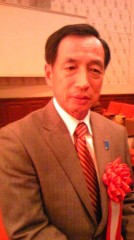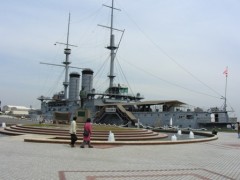05 September 2009
German Film "Der Baader-Meinhof Complex" A story of German Red Army
I went to the theatre in Shibuya to see the film.
I really enjoyed it. German films are enjoyable if you know history of Germany such as Nazis, Berlin Wall, and 1968 anti-imperialist movement.
So far, what I have seen are as for Nazis "Sophie Scholl," "Der Untertgang" and as for Berlin Wall, "Lives of others," and "Good-bye, Lenin."
This time I watched post-war radical movement that took place in 1968, Germany. Youngsters became so radical because they believe they could wipe out imperialism and change the world better. One female liberal journalist with two daughters joined the movement.
But the consequence was disastrous. They became terrorists, bombers and hi-jackers, later ended up with commiting suicide in prison cells.
Japan had the same movement in the same era. The consequence were very similar. These days youngsters are not interested in such radical way of movement.
Germany and Japan went through the same path since 1930's in that sense. The country was dominated by militants in pre-war era. After the war, youngsters provoked radical social movement.
Recently my interest to foreign things was shifted from the U.S. to Germany.
I went to Berlin last year. I was really impressed. I get acquainted with German people in business. I am studying German now.
Germany has a lot of things we, Japanese can learn from. One of notable things is how they dealt with war review and compensation.
Other things are local sports club, farms, and ecology policy. Germany is leading producer of solar PV in the world.
Germany succeeded reduction of CO2 emission as it scheduled following Kyoto Protocol while other nations failed.
I want to know more about this country.
Deutcheland uber alles in der Welt!
15:33 Posted in Deutschland, Film, Politics | Permalink | Comments (0) | Tags: history, terror
20 August 2009
I fell in love with this guy!
See this videoclip! He is Japan's new hero. Sorry, only Japanese version.
His speech in Hiroshima. Scenes of anti-nuke group activities, and Uigurs who protest nuclear tests done by China (time code: 3:42) in the city come first.
And the people who protest and support his speech (time code: 6:34) and then scenes in the convention hall which his speech took place.
He was Japan's Airforce chief but was dismissed because of his provocative essay he released in public.
I've already introduced him in other article on this blog. Please read this.
He is passionately patriot. But his statements were too provocative.
But he and I have things in common. Both of us want to get rid of U.S. military bases from Japan to protect our sovereignty and tradition.
He even claims Japan should arm with nuclear weapons.
I've met him twice and shook hand with him. I could take a picture of him. The below is what I took at Kudankaikan hall in Tokyo, where his speech was held.

He was very polite and gentle. His speech was filled with passion.
Second time was the meeting for journalists. He has made a similar speech. I was given a opportunity to ask a question. I denounced his statement about denial of Nanking Massacre because I've met some survivors of the atrocities. But I said to him, I am for Article 9 amendment so that Japan can possess legitimate military but it was illegal to cause civilian casualties even at the time Nanking Massacre occurred. Why not we swear not to repeat the same mistake like Germany did?
His response was kind of surprise. "I've met a military official in China. They spoke so ill of what our military had done over there. I wanted to tell him, why not they spoke the same things about Britain? We are better than what Britons did. The Convention treaty was signed between the two countries. It was done. Why can't we forget about it?"
He seemed to admit the fact that the atrocity occurred. He was kind of honest and clever, I think. He just try to use this history issue to change his country's military policy. Interesting guy!
Thanks to him, I rethink about what patriotism is and what our tradition is. I became patriot and traditional.
Recently I started to wear Japanese traditional clothes including swim suit of the below. The suit became unpopular since the U.S. occupied Japan because Americans thought such Japanese tradition was barbaric. Now I am trying to recover this tradition. I am proud of wearing it and showing myself in it in public. This suit makes any man sexy and real Japanese traditional man, so called Nihon Danji. It is not only used for swimming but participating in festivals. The below is how I wear it, please enjoy watching.
22:23 Posted in Deutschland, Politics, USA issues | Permalink | Comments (0) | Tags: history, military, racism
01 August 2009
Why not remake "Shogun"?
As I described before on this blog, I became a free walking tour guide of East Garden of Imperial Palace. Read this article.
Last week, I met an American woman who is a college professor. I guided her to the imperial palace and explained history of pre-modern Japan and the imperial palace.
Imperial Palace was in fact, Shogun's castle before modern times. Shogun literally means "General." He was a actual ruler of Japan. A lord that takes control of all the regional lords of Japan. The emperor has been the symbol of Japan although former constitution states he was divine and above all. He never actually took authorities. The emperor was relocated to the palace in Tokyo from Kyoto after Japan's modernisation around 1860's.
I talked with her about TV mini-series "Shogun." It was aired in US and Japan 1980. The drama was based on James Clavell's book.
She told me she watched the show and read the book, too. It was reall popular show.
I wonder why someone wants to remake it as movie. Recently Japanese famous film stories were being remade by foreign film maker like "HACHI" and "47 Ronins."
Then why not remake this TV mini-series?
Can they make this long hour TV drama into 2-3 hour movie story? I think it may be possible. The film should be remade by Britain.
It is a story of British navigator cast away to Japan coast and saved by a lord who later became first leader of unified Japan in 17th century.
The British man, Miura Anjin was modeled after a real person named William Adams.
This time, I would advise the film maker to insert clearer description of homosexuality in that period. In TV mini-series, there was a scene that implied how tolerated homosexuality was in those days Japan. Now a generation passed. It should be featured more openly. Like Anjin has a sex with beautiful boy for pillowing following the advice from his interpreter, Mariko.
It was openly done that a samurai who had a wife or wives and even children had sex with boys for pleasure. They even had sex with their retainers or sworn brothers. It was very common and never considered abnormal like modern times.
Surely Shogun enjoyed gay love affair and sex not just with his 1000 wive in the castle. It is said that one of the reasons the Shogun could maintain good governance of Japan for centuries was he tolerated sexual life style of people. Japan was originally free-sex society unlike some Christian societies where sexual regulation was a key to maintain order of a society.
I am excited to see the remake version of "Shogun" and gay scenes in it.
21 June 2009
"Auld Lang Syne" is very nice song
This was in fact Scottish folk song.
The song for rememberance and friendship. In 19th century the song was introduced to Japan and was used as martial song.
Japanese translated version "Hotaru no Hikari, The glow of a firefly" was for promotion of patriotism and imperialism.
I learned this song when I was small. Recently I enjoyed the song in the war story film "Umi-yukaba."
The story took place in early 20th century, when Japanese sailors fought against Russian fleet.
When the battle ship departed from Japanese imperial navy's port, Sasebo. This tune was played on the ship by its brass-band.
The sailors were waving their hand to the local people who were waving national flags to them.
The battleship was called "Mikasa." I have strong spritual connection with the ship.
I remember when I first visited Yokosuka to join the protest activity against deployment of USS George Washington last year.
I was invited to the ship by the souls of the sailors. At first I tried to get to the office of the activist group from the train station, but I got lost and after a while I found myself standing in front of the ship exhibited in the marine park.
The Mikasa was flagship of Japanese imperial Navy in early 20th century. During Russo-Japan war (1904-05) the ship and its fleet struck down Russian imperial navy's Baltic fleet in Sea of Japan. Japan won Russian Empire. The ship was built by British. Japan was supported by Great Britain in the war. British did not allow Baltic fleet to pass Suez Canal so that the Russian fleet had to spend more time, supply and coals to reach Japan's sea.
We owe a lot to Great Britain but unfortunately two nations fought against each other in the war later.
I recently found a good video clip for the song. The background image is scenes from a classical film "Waterloo Bridge" which Vivien Leigh, an actress who also starred in the very famous classical film "Gone with the Wind." I don't know who sang the song. I wish some day I would be able to listen to the song sang by a famous British singer, Suan Boyle.
14:36 Posted in Britain, Music | Permalink | Comments (0) | Tags: history, movies, navy, nuclear aircraft carrier, military






